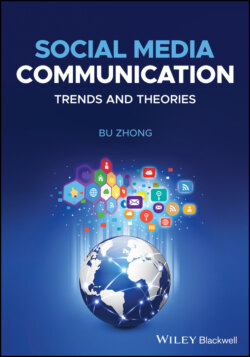Читать книгу Social Media Communication - Bu Zhong - Страница 22
Definition of Technology
ОглавлениеThe notion of technology is not foreign to human beings. Today, people tend to think about technology in terms of such novel innovations as VR (virtual reality), 3D printers, or drones, but technology is also as old as a stone axe and as simple as paper making in the history of human civilization (see Thurlow et al., 2004). In this view, social media are just one of the new applications in a long line of technologies invented by human beings.
We all know what technology is, or we think we do. The same term, nonetheless, may mean different things to different people. Before we review the role of technology, it is helpful to define what technology is. A widely cited definition of technology is from the International Technology Education Association (ITEA) in the United States:
Broadly speaking, technology is how people modify the natural world to suit their own purposes. From the Greek word techne, meaning art or artifice or craft, technology literally means the act of marking or crafting, but more generally it refers to the diverse collection of processes and knowledge that people use to extend human abilities and to satisfy human needs and wants.
(ITEA, 2007, p. 2)
Technology thus can be best understood as an intrinsic human faculty, which is one of human beings’ basic, even defining characteristics (Heidegger, 1977). Heidegger noted that technology and sciences are distinct, but they strongly influence each other, and technology is often the cause of scientific breakthroughs. To Heidegger, there are several essential facts about what technology is; i.e., technology, as a human activity, is a means of transforming nature; technology is the art of solving practical problems, not an application of abstract theory. In essence, the technological act of creation is the act of revealing the truth out of the many possibilities offered by nature.
In human history, technological innovations have had wide-ranging effects across numerous domains of society. One of the most significant outcomes of the progress of technology is its impact on social activities and the environment these activities have. For example, the progress of information and communication technology has brought long-lasting consequences to people’s interpersonal relations, and access to and affordability of information.
Human civilization has gone through numerous changes in history, and in recent years ours has been profoundly affected by the diffusion of ICT. Today, people still need to communicate by phone or meet others face-to-face, but social media are providing yet one more means of engaging with people in society. If used effectively, social media can give all of us a greater choice in how we communicate and do business in the world. To better understand the underlying mechanism of social media, it is important to review the role of technology in the four eras of human civilization.
